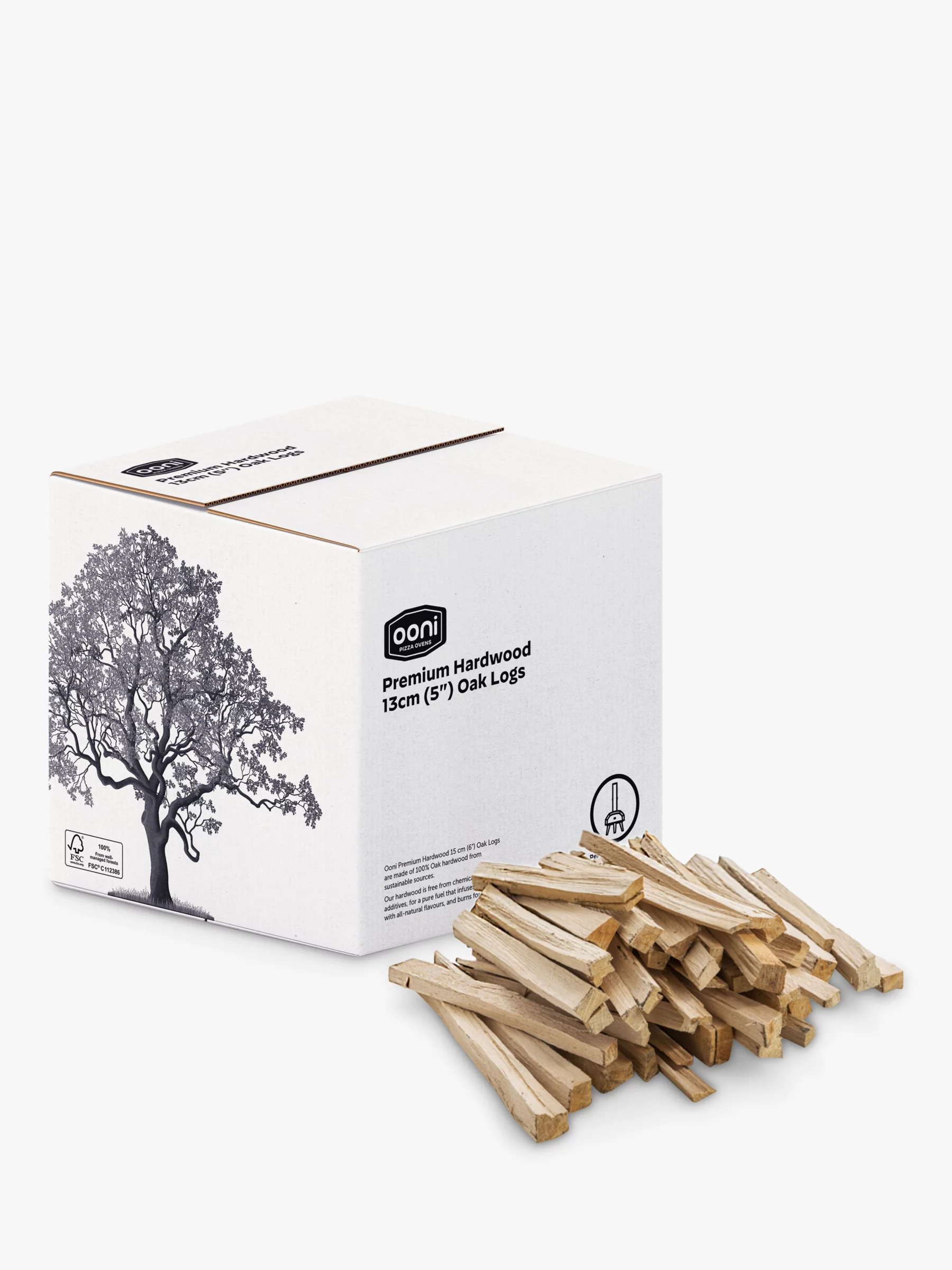Can you burn wood in your garden? What you need to know about rules around lighting firepits, pizza ovens and BBQs
From the legal guidelines to the types of wood that you should never burn, find out everything you need to know
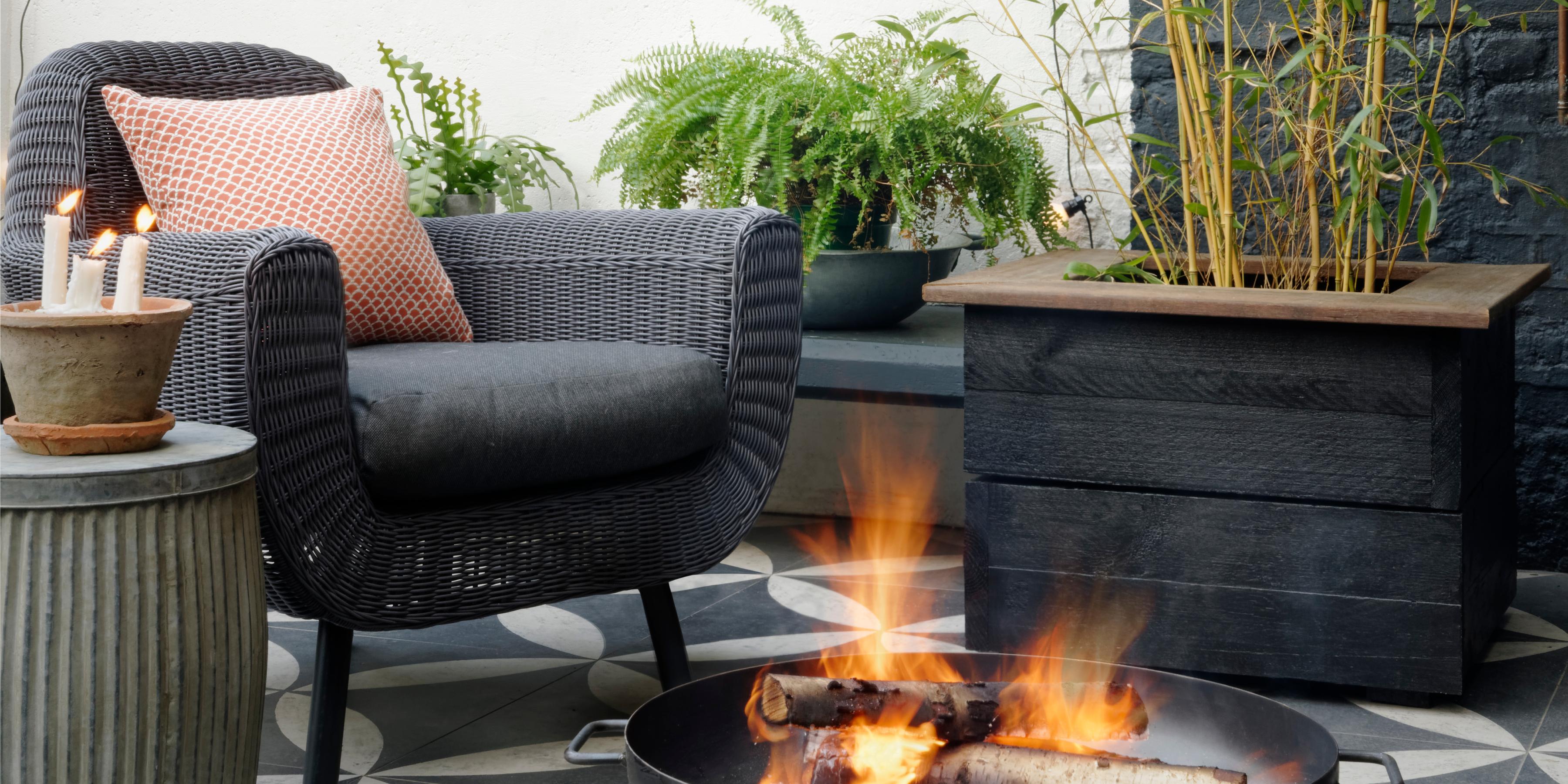
As the temperature starts to dip on a summer’s evening you might have found yourself grabbing a blanket or cardigan to drape over you. But there’s nothing quite like gathering around a fire pit or chiminea. So, it’s easy to see why some of us might have thought about burning wood in our gardens.
The regulations over whether you can burn wood in your garden apply whether you a having a full-on bonfire or just invested in the best firepit or a new pizza oven. There are a few things to bear in mind as you go about burning certain items within the grounds of your home.
‘In the UK, regulations are in place to mitigate the environmental damage of unchecked garden burning,’ explains John Davis, Owner and Operational Director at Springfield Steel Buildings. And not only that, but the impact that it can have on those around us.
Here’s everything you need to know about burning wood in your garden, from the legal implications to why you should always try to be considerate of your neighbours.
Can you burn wood in your garden?
First of all, it is important to understand and separate the types of wood that you could be burning in your garden. There are certain types of wood which should never be burned, whether that is in your garden or indoors. ‘It is illegal to burn certain types of wood, particularly those that have been treated with chemicals or are painted,’ warns Nadezhda Yaneva, Gardening Expert at Fantastic Gardeners. This is because ‘treated wood releases toxic chemicals when burned, which can be harmful to health and the environment,’ she continues.
Joanna Humphreys, Fire and Stove Specialist at Direct Stoves, agrees. ‘It’s very important to avoid burning any type of treated wood in outdoor fires. Treated wood has been chemically altered to resist rot, fungi, insects, and other damage. The preservatives and chemicals used to treat wood can release toxic fumes and smoke when burned,’ she affirms.
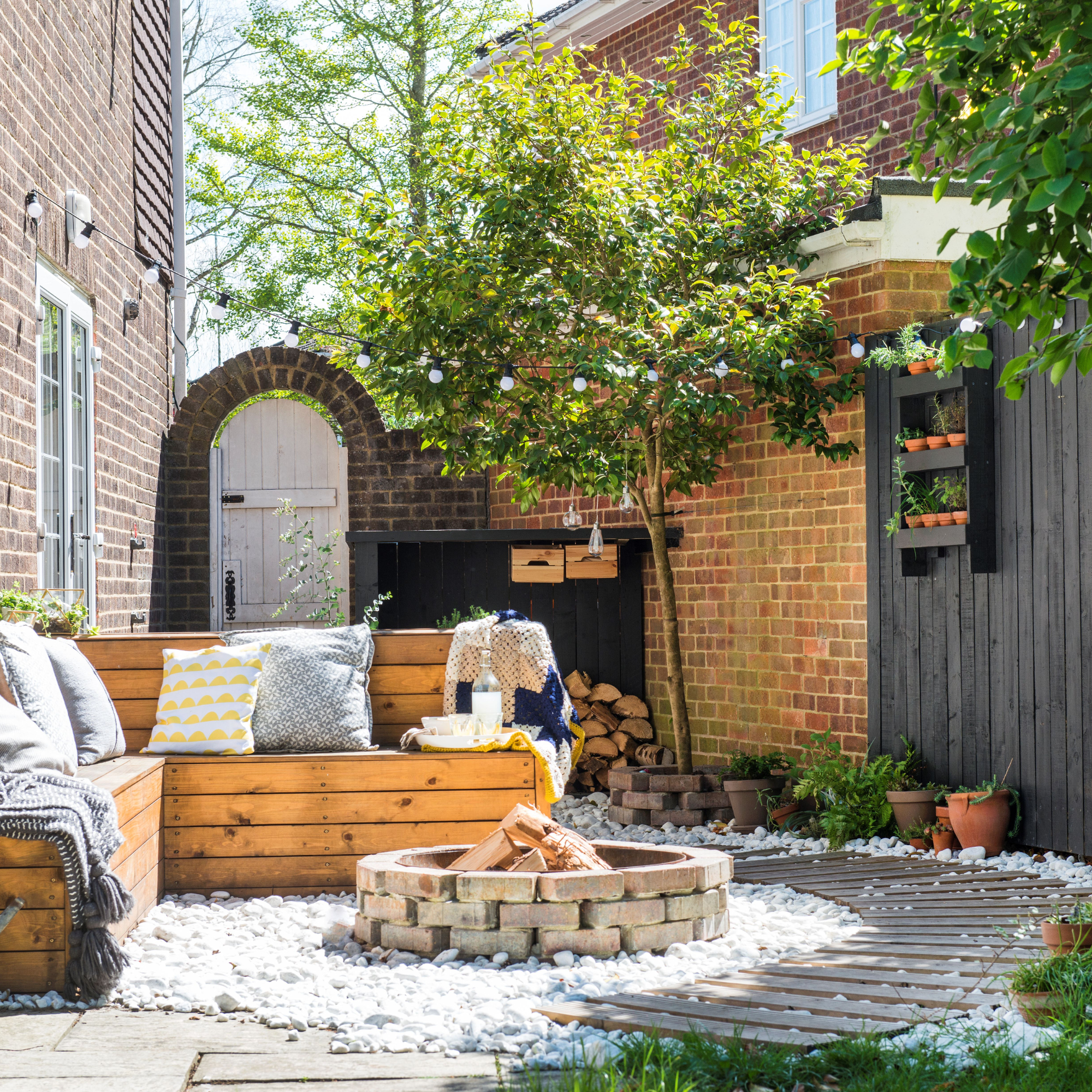
‘To be safe, only burn untreated, natural hardwood and softwood logs and branches. When you’re uncertain about a wood’s treatment history, play it safe and don’t use it for your firepit – or any fire,’ Joanna suggests.
That means you should never burn old wooden garden furniture or items made of treated wood in your garden. Another big no-no is burning any other garden or household waste such as leaves or cardboard boxes as a quick way to get rid of it. You should not be burning household waste to get rid of it, especially if it will cause pollution or harm people’s health. You can easily get rid of household or garden waste by composting or recycling it, with different councils throughout the UK offering a range of services to allow you to do exactly that.
Is it against the law to burn wood in your garden?
While it isn’t against the law to burn wood in your garden, ‘you could be fined if you light a fire and allow the smoke to drift across the road and become a danger to traffic,’ according to the UK government.
‘Fines can also be imposed for causing a nuisance to neighbours, burning prohibited materials, or failing to follow fire safety guidelines,’ Nadezhda admits. ‘The amount of the fine can vary depending on the severity of the infraction and local laws.’
Your local council also has a responsibility to investigate complaints of smoke and fumes that could be a ‘statutory nuisance,’ the government declares. Essentially, they can issue an ‘abatement notice’ if your or a neighbour’s bonfire is causing a nuisance in your neighbourhood. And either you can make a complaint about a neighbour’s garden fire or they may make a complaint about yours. This is another case where a fine may be issued if the rules of the abatement notice are not followed.
And depending on where you live in Britain, ‘if complaints are made and an abatement notice is issued, failing to comply can result in fines of up to £5,000 for domestic properties and £20,000 for business premises,’ say the Yell’s Gardening Experts, with ‘the Environmental Protection Act 1990 addresses issues related to smoke nuisance,’ they continue.
Because of this, it’s always worth checking local guidelines to ensure that you aren’t accidentally in breach of them.
Where to buy wood that's safe to burn
You can order bags of Kiln Dried Hardwood logs from Argos online and are suitable for burning in smokeless zones.
FAQs
Can you burn wood in a residential area?
While there aren’t different rules depending on whether you live in a more suburban or city locale, compared to a rural or farmland area, residential areas tend to have homes located closer together than you would in the countryside. Because of this, it can often be far more disruptive and noticeable when someone is burning wood in a residential area. It could also have a potential impact on air quality and your neighbours.
I mean, no one likes to be sitting outdoors enjoying the fresh air or drying their laundry outdoors only to be met with plumes of smoke. And despite being able to burn certain woods in your garden, there are additional rules about smoke. However, these mostly pertain to chimneys instead of wood being burned.
Again, you should check with your local council, as the rules in different postcodes and areas in the UK can differ. For instance, ‘some areas may have outright bans on open fires or restrictions on the times and conditions under which you can burn wood,’ Nadezhda reveals.
Can I have a bonfire in my garden?
The simple answer is yes. There are no official restrictions on when or how often you’re able to light a bonfire in your garden. But you should really be mindful of your neighbours as you go about doing this.
You might want to set up your bonfire at the end of your garden furthest away from your neighbours’ property or keep it relatively small to limit its impact beyond your own outdoor space. And if the wind is blowing in the direction of your closest neighbour, you may want to wait until the wind is blowing away from them before lighting a bonfire.
A fire can also easily get out of hand if it is too big or burning too intensely, which could pose a serious risk to you and others if not managed correctly. You should never leave a bonfire unattended once it has been lit and it should be fully extinguished, by raking over the ashes, when you intend to go indoors or overnight.
Ideally you should have a fork, spade or hose ready, just in case you need to extinguish the bonfire quickly.
Get the Ideal Home Newsletter
Sign up to our newsletter for style and decor inspiration, house makeovers, project advice and more.

Ellis Cochrane has been a Freelance Contributor for Ideal Home since 2023. Ellis has been writing about homes, interiors and gardens for four years now, with her also contributing to House Beautiful, Country Living, Expert Reviews, Real Homes and Stylist.
-
 Should your front door colour match your hallway? Interior experts reveal 3 reasons why it should (and 3 reasons it shouldn't)
Should your front door colour match your hallway? Interior experts reveal 3 reasons why it should (and 3 reasons it shouldn't)Are you team matching or contrasting?
By Ellis Cochrane
-
 This £200 limited-time discount makes this Dyson vacuum cheaper than I’ve ever seen it - run don’t walk to Argos for this bargain
This £200 limited-time discount makes this Dyson vacuum cheaper than I’ve ever seen it - run don’t walk to Argos for this bargainIt's the most affordable Dyson on the market right now
By Lauren Bradbury
-
 Martin and Shirlie Kemp’s pastel flower beds has given their Victorian renovation a romantic look - how you can get the look
Martin and Shirlie Kemp’s pastel flower beds has given their Victorian renovation a romantic look - how you can get the lookTheir pastel garden is the cottage garden inspo you've been looking for
By Kezia Reynolds
-
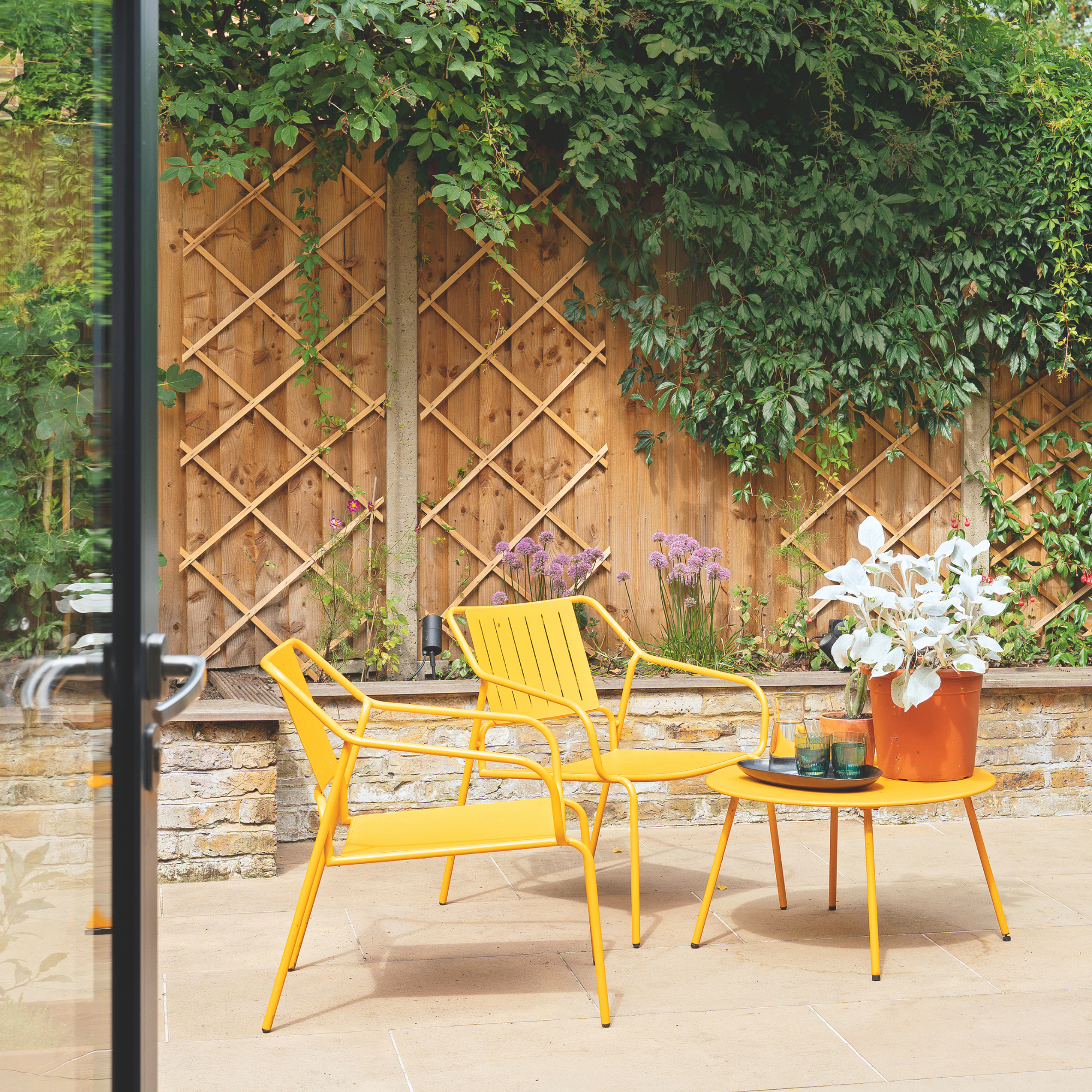 I’m seeing pastel garden furniture at all my favourite brands this spring, but QVC’s sorbet collection impressed me the most
I’m seeing pastel garden furniture at all my favourite brands this spring, but QVC’s sorbet collection impressed me the mostFresh pastel shades are a great way to liven up your outdoor space
By Kezia Reynolds
-
 I spent the afternoon looking through Wayfair's garden sale – these are the 6 pieces I'm buying immediately for summer
I spent the afternoon looking through Wayfair's garden sale – these are the 6 pieces I'm buying immediately for summerThese are my must-have garden buys from the sale
By Holly Reaney
-
 I’ve found the perfect alternative to John Lewis’ sold-out striped garden chair – and you won’t believe where it's from
I’ve found the perfect alternative to John Lewis’ sold-out striped garden chair – and you won’t believe where it's fromJohn Lewis' Sling Garden Chair is one of the most stylish pieces of garden furniture I'd seen – until I tracked down this QVC lounge chair...
By Kezia Reynolds
-
 Lidl is selling a smart tiered planter that will unlock extra planting space in a tiny garden or balcony
Lidl is selling a smart tiered planter that will unlock extra planting space in a tiny garden or balconyWhy I've been eyeing this planter up for my tiny garden
By Kezia Reynolds
-
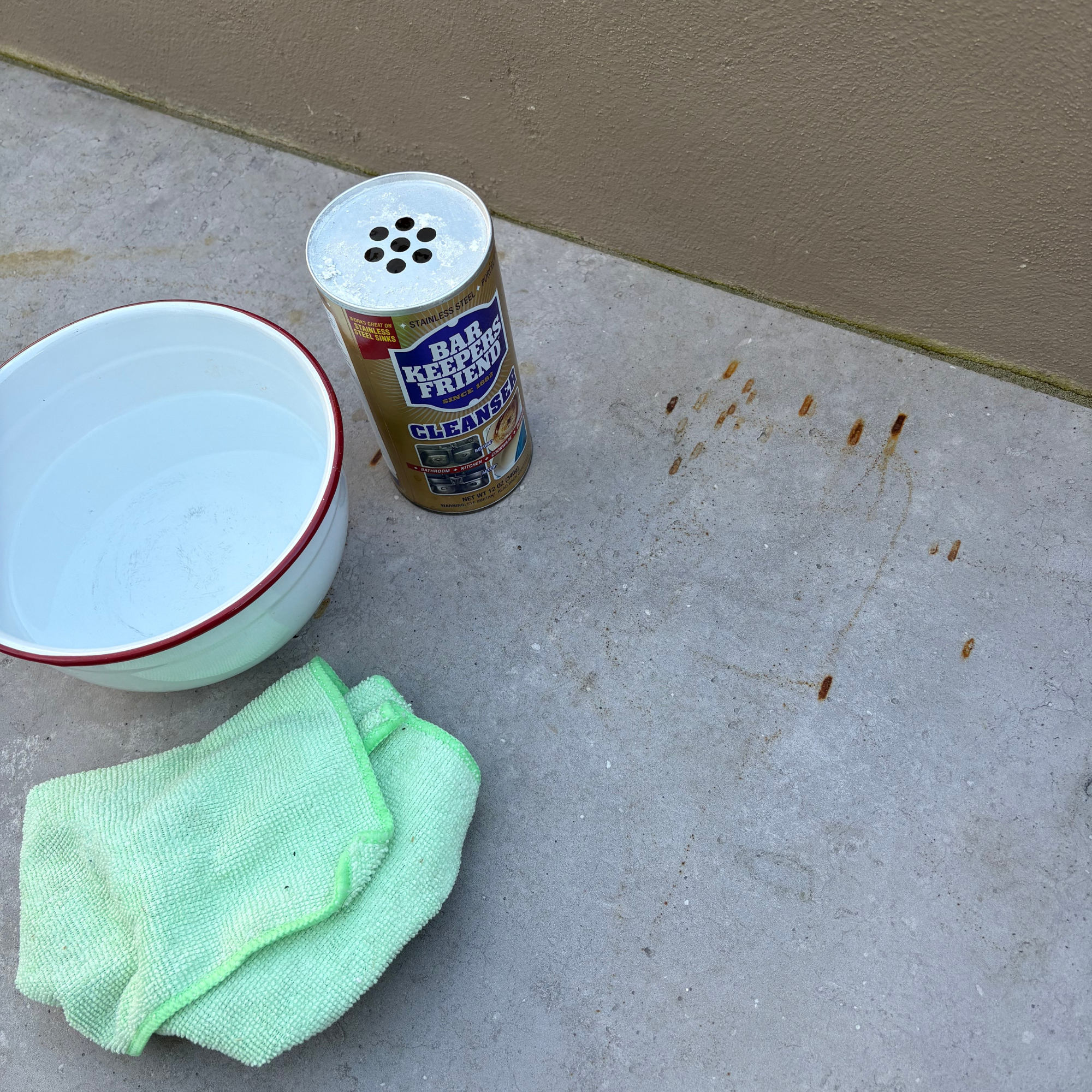 I’ve found the best solution for cleaning stains from a patio - and it’s only £8 on Amazon
I’ve found the best solution for cleaning stains from a patio - and it’s only £8 on AmazonThe stains practically vanish!
By Kezia Reynolds
-
 Lidl’s £15 sun sail is everything you need to create a shady oasis in your garden – and it’s on sale right now
Lidl’s £15 sun sail is everything you need to create a shady oasis in your garden – and it’s on sale right nowWith two stylish colours available, the sun sail will make a chic yet practical addition to any of your garden.
By Kezia Reynolds
-
 B&M has nailed 2025's breakout garden furniture trend - it's one of the most affordable and stylish I've seen
B&M has nailed 2025's breakout garden furniture trend - it's one of the most affordable and stylish I've seenGet the luxe look for less
By Kezia Reynolds
-
 I was shocked to discover a treasure-trove of designer-look garden furniture at La Redoute on sale right now – 6 chic standouts
I was shocked to discover a treasure-trove of designer-look garden furniture at La Redoute on sale right now – 6 chic standoutsGive your garden that high-end look
By Sara Hesikova
